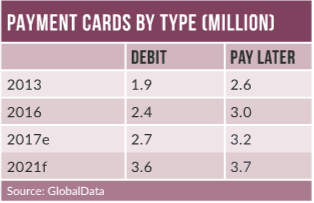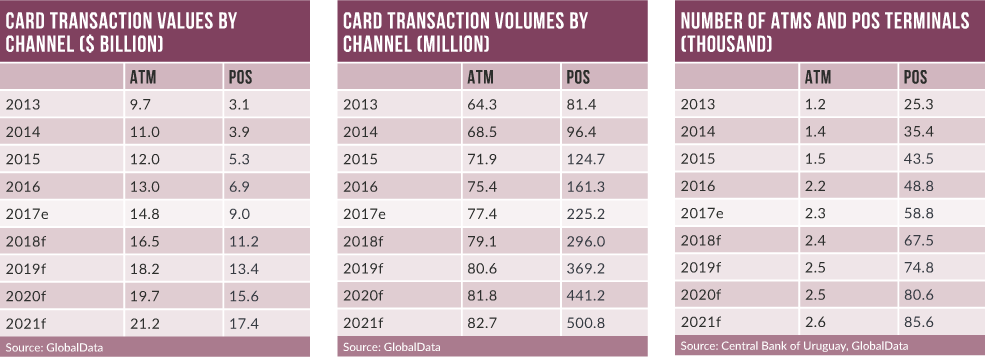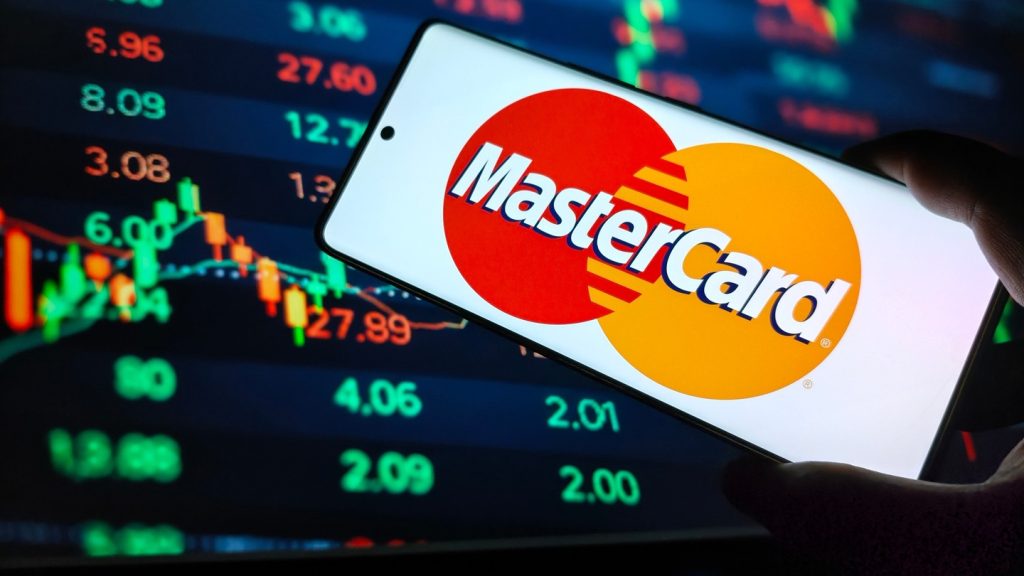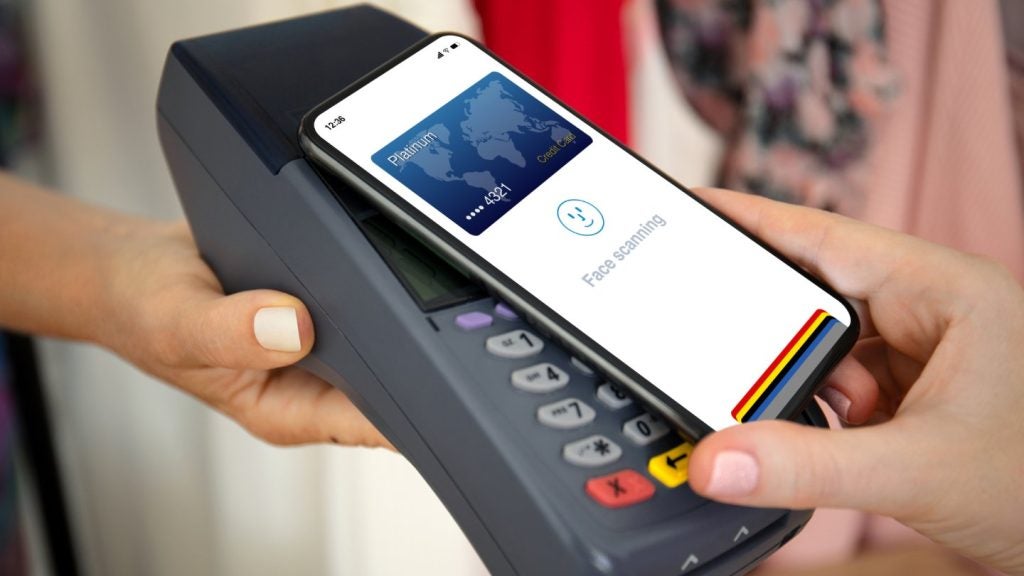Uruguay saw a gradual shift towards electronic methods of payment during 2013-2017, with the government taking steps to promote electronic payments and reduce dependence on cash.
A major milestone was the financial inclusion programme, through which 850,000 bank accounts had been opened by December 2017; as a result, the percentage of the Uruguayan population aged 15 or above with a bank account rose from 38.1% in 2013 to 61.0% in 2017. Initiatives such as reductions in interchange fees and VAT on debit and credit card transactions, as well as subsidies for POS installations and restrictions on cash, also encouraged electronic payments. Uruguayan consumers are more likely to hold a credit card than a debit card.

Access deeper industry intelligence
Experience unmatched clarity with a single platform that combines unique data, AI, and human expertise.

However, debit cards registered strong growth in terms of transaction volume and value, with respective CAGRs of 27.1% and 17.3%. Debit cards accounted for 75.7% of the total card transaction value. However, cash withdrawals at ATMs accounted for 78.2% of the total debit card transaction value in 2017. Restrictions on cash and reduced interchange fees have resulted in a significant rise in debit card use. Debit cards registered significant growths in terms of both transaction volume and value at the POS, with respective CAGRs of 107.7% and 100.4%. Government restrictions on certain transaction types are also expected to encourage debit card use. Pay-later cards accounted for 24.3% of the total card transaction value in 2017, with these cards generally targeted at high-income and working consumers.

Uruguay’s nominal GDP per capita stood at $17,345.92 in 2017, which is among the highest in Latin America. All major banks now offer premium cards. For salaried individuals, Santander offers the Visa International credit card with no annual fee for the first year, as a part of its Full Inclusion salary account package. Many banks also offer customised credit cards for businesses. Scotiabank, for example, offers the Visa and Mastercard Corporate credit cards.

US Tariffs are shifting - will you react or anticipate?
Don’t let policy changes catch you off guard. Stay proactive with real-time data and expert analysis.
By GlobalDataThe prepaid card market registered robust growth in terms of both the number of cards in circulation and transaction value. The prepaid card transaction value rose from UYU2.6bn ($90.21m) in 2015 to $927.07m in 2017. With government focus on increasing financial inclusion, prepaid issuers are offering cards for working individuals to receive monthly salaries. The number of POS terminals grew from 25,299 in 2013 to 58,817 in 2017, at a CAGR of 23.5%.
To encourage merchant adoption of POS systems, the government offered tax benefits between August 2014 and December 2017 for merchants investing in POS terminals, accessories and billing systems







